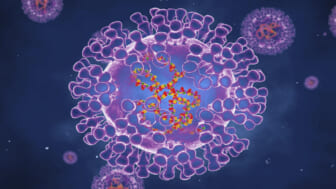As summer begins, it’s also barbecue season. But experts warn that you should know the risks before you eat that grilled hot dog.
“The evidence is pretty convincing that regular consumption of processed meats is detrimental to health, including colorectal cancer, type 2 diabetes and cardiovascular disease,” said Dr. Frank Hu, professor of nutrition and epidemiology and chair of the Harvard nutrition department. TH Chan School of Public Health, said the new york times. In addition, he argued, most health authorities agree that “processed meats are more harmful than unprocessed meats.”
Grilling meat increases the risk of cancer, since high temperatures can lead to additional carcinogenic effects, Marji McCullough, senior scientific director of epidemiological research at the American Cancer Society, told the Times.
Processed meat includes ham, sausage, bacon, hot dogs, jerky, pepperoni, and deli meats. Curing, fermenting, smoking, or salting meat increases flavor and shelf life, however, processing has been said to contribute to cancer development.
The World Health Organization deemed processed meat “carcinogenic to humans” in 2015. The International Fund for World Cancer Research recommends eating little, if any, and suggests limiting servings of red meat to 12 at 18 ounces per week.
Red meat is currently classified by WHO officials as “probably carcinogenic.” It also contributes to the risk of heart disease and stroke.
“Most of the studies focus on high-consumption processed meats: hot dogs, bacon, sausage,” Hu said. And because all types of processed meats are studied together, he added, “it’s hard to make a conclusive statement about which processed meats are better or worse than others.”
“Theoretically, you can argue that processed poultry and fish are not as bad as processed red meat,” he said, but noted there is no evidence to support this. Therefore, Hu advised that those processed products should be treated with the same caution.
The Times report adds that processed meat may also contribute to the development of type 2 diabetes and even dementia and Alzheimer’s disease.
“A plant-based diet is going to be much more preventive in reducing risk,” Dr. Vijaya Surampudi, an assistant professor of medicine at the UCLA Center for Human Nutrition, told the Times. “It doesn’t mean you have to be 100 percent vegan or vegetarian,” she said, just that most dietary choices should be plant-based.
“I think if people can choose lean cuts, organic and vegetarian foods, if they can afford it, that’s better,” Surampudi said, “because whatever the animal you’re consuming ate, that’s concentrated in the body of that animal.” . , and then we consume it”.
TheGrio is FREE on your TV through Apple TV, Amazon Fire, Roku, and Android TV. Please download theGrio mobile applications This day!
!function(f,b,e,v,n,t,s)
{if(f.fbq)return;n=f.fbq=function(){n.callMethod?
n.callMethod.apply(n,arguments):n.queue.push(arguments)};
if(!f._fbq)f._fbq=n;n.push=n;n.loaded=!0;n.version=’2.0′;
n.queue=[];t=b.createElement(e);t.async=!0;
t.src=v;s=b.getElementsByTagName(e)[0];
s.parentNode.insertBefore(t,s)}(window, document,’script’,
‘https://connect.facebook.net/en_US/fbevents.js’);
fbq(‘init’, ‘430136718940918’);
fbq(‘track’, ‘PageView’);


